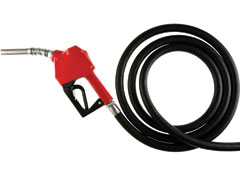
Automakers have demonstrated they know how to boost fuel economy. The question is, are consumers ready to accept it?
Fuel economy standards are already rising from today's 27 mpg to 35.5 mpg by 2016. The latest proposal is to raise that to 56.2 mpg by 2025. Here at Consumer Reports, we've endorsed that goal as a minimum standard. We think automakers can rise to this technical challenge and doing so will be good for the nation.
The technology to boost fuel economy to these levels is already appearing on the roads, from hybrids and clean diesels and the adaptation of direct injection, start-stop systems, new types of transmissions, and electric power steering and air conditioning systems for conventional cars.
But that's not to say a significant bump in fuel econonomy will come without sacrifice. We've tested a number of cars with some of these new systems. And we've found that not all of these technologies work quite seamlessly.
- Direct-injection engines generally improve fuel economy. This is one of the chief technologies used in the new Hyundai Sonata, a comfortable midsized sedan that gets 27 mpg overall in our testing and 40 mpg on the highway. But we've found in many cars that direct injection makes the engines sound louder and feel less smooth. When Audi first introduced it on the 2006 A4, some of our testers thought it sounded like a diesel.
- The latest clean diesels get great mileage, have impressive power, and are much quieter than diesels from the 1980s. But they have frequent maintenance schedules to clean their particulate emissions traps and in some cases add a new "diesel exhaust fluid" to help them run cleaner.
- Continuously variable transmissions can give a boost to fuel economy. One of the cars where we've seen this to great effect is the current Subaru Outback, which grew taller and wider and gained 250 pounds over the old model. It still has all-wheel drive but gets a significant 3 mpg more than the old Outback. But some of our testers found it annoying when the new Outback's CVT began "motorboating" or holding high revs up hills and spun up the rpm (and the noise) with every press of the accelerator pedal.
- A different take on transmissions has been the proliferation of automated manual transmissions such as Volkswagen's DSG and Ford's Powershift. Automakers say these transmissions save gas by combining the mechanical efficiency of a manual transmission with the consumer demand for automatic shifting. We've found that the cars that use these transmissions have only returned fuel economy that is on par with other models in the same class. And many of our drivers have criticized that at low speeds, the transmissions are jerky, like riding with a driver just learning to use a clutch.
- Electric power steering is getting better, and we've found that in several models where it has been employed, including several Fords, fuel economy has increased by 2-3 mpg. But we've also criticized it in many cars for feeling artificial and offering too little feedback. That's not a universal criticism, as some models have decent feedback, but it has taken some automakers a few years to get the tuning right.
With these and any other new automotive technologies, there will be a development curve that sees early adopters making inherent sacrifices.
As consumers, that can be an uncomfortable place to be. But it's likely to be less uncomfortable than being left having no alternatives to gas-guzzling cars if oil prices continue to rise. Since that's what most commodity traders and industry and government analysts expect, there is a movement to have the nation focus on making real advances in fuel economy to hedge our bets.
Since most of these systems have the potential to save consumers money at the pump while limiting the amount of oil we use, we think the latest Corporate Average Fuel Economy standard proposals are well worth the effort. And we promise to keep our finger on the pulse as we continue testing upcoming cars, to call out any issues we encounter and steer consumers toward the products with the best gas mileage and the fewest drawbacks.
Related
Guide to fuel economy
Guide to alternative fuels
Tomorrow's 56.2-mpg technology showcased today in Toyota Highlander Hybrid
Consumer Reports says 56.2 mpg is good, but we can do even better
—Eric Evarts














 Previous
Previous







Post a comment
Comments: